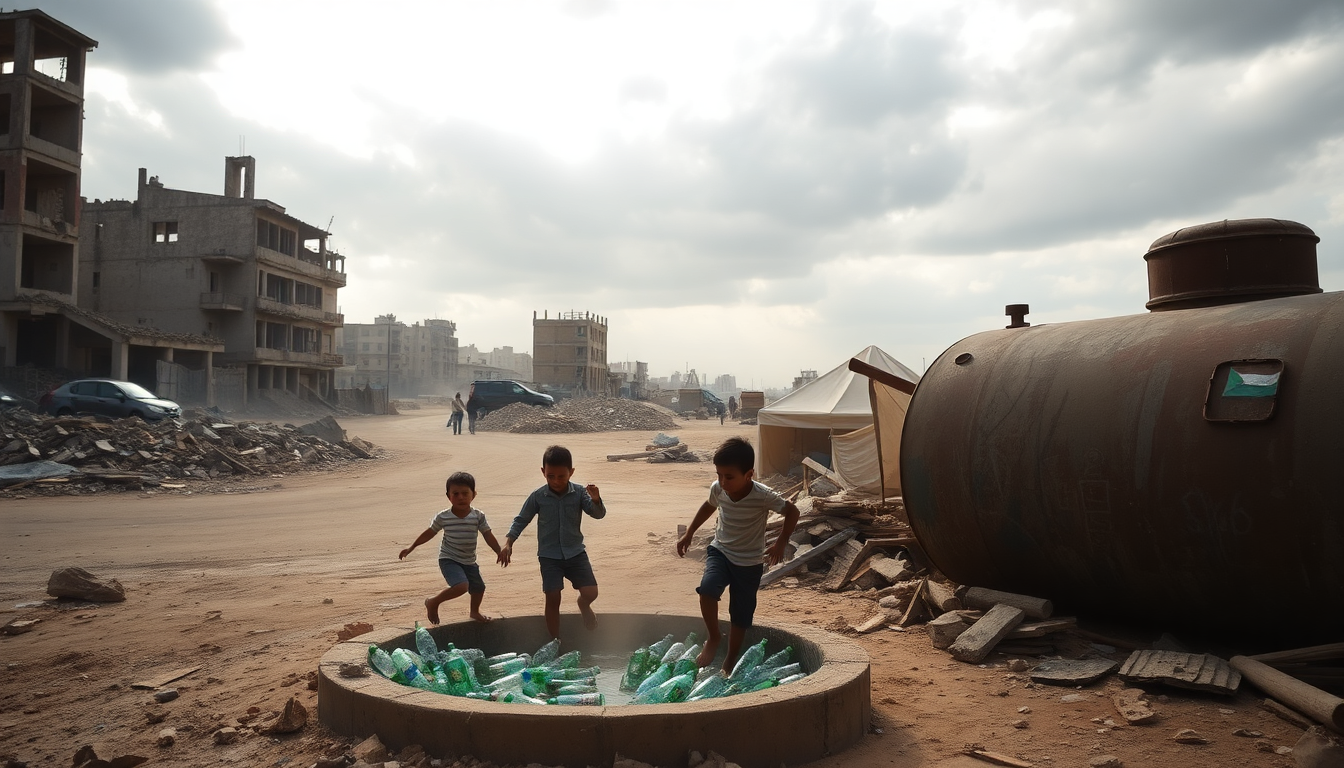Table of Contents
The humanitarian crisis in Gaza has escalated to alarming levels, with the United Nations humanitarian agency (OCHA) revealing a dramatic rise in preventable diseases. This surge is largely due to critical shortages of medical supplies, clean water, and proper sanitation. The ongoing blockade by Israel has only worsened these dire conditions, inflicting widespread suffering on the civilian population. As the conflict rages on, the call for immediate international assistance has never been more urgent. How can we stand by as the situation deteriorates further?
The Current Conditions in Gaza: A Public Health Crisis
In just the past few weeks, OCHA has reported over 19,000 cases of acute watery diarrhea, along with significant instances of other severe health issues like acute jaundice syndrome and bloody diarrhea. These outbreaks are directly linked to the lack of clean water and sanitation facilities, which are vital for ensuring public health. The agency underscores the critical need for fuel, medical supplies, and hygiene products to prevent a complete collapse of an already fragile health system. Isn’t it heartbreaking to think about the preventable suffering caused by such basic needs?
The blockade imposed by Israel has drastically limited the entry of essential goods, crippling Gaza’s infrastructure, including its desalination plants. Consequently, the water supply has shrunk, leaving many residents without safe drinking water. This grim reality has led to rising morbidity and mortality rates, hitting vulnerable populations like children and the elderly the hardest. What kind of future awaits them in such conditions?
The Impact of Military Actions on Civilian Life
The ongoing military operations in Gaza have not just left a trail of widespread destruction; they have resulted in devastating civilian casualties. Recent reports reveal that the Israeli military has been killing dozens of Palestinians daily, with an astonishing count of over 56,000 fatalities and more than 132,000 injuries recorded since the conflict began in October 2023. This violence only deepens the already critical humanitarian situation, making urgent global intervention absolutely necessary. Can we really afford to ignore these staggering numbers?
Leading human rights organizations and United Nations experts have labeled Israeli actions as genocidal, pointing to the systematic targeting of civilians and the destruction of crucial infrastructure. On the ground, the situation is deteriorating rapidly, with countless families displaced and struggling to meet even their most basic needs. What does it mean for a society when its very foundation is under siege?
The International Response and the Way Forward
In light of the crisis, the Israeli government announced in May a limited resumption of aid into Gaza after a prolonged blockade. However, the amount of aid permitted remains woefully inadequate, with agencies describing it as merely a “drop in the ocean” compared to the overwhelming needs of the population. Much of this assistance has been funneled through the United States and the Gaza Humanitarian Foundation, which has faced criticism for allegedly politicizing humanitarian relief. Is this really the best we can do?
As international pressure builds for a more effective response, Israeli officials have recently hinted at plans for a new strategy to facilitate aid delivery. This follows unverified reports of security concerns regarding how aid is distributed. While Israel claims that factions within Hamas are hijacking humanitarian efforts, Palestinian leaders argue that the masked individuals seen at aid sites are simply protecting supplies from looters, reflecting the chaotic conditions on the ground. Who can we trust when so many narratives clash?
Multiple UN officials have disputed claims of Hamas hijacking humanitarian aid, emphasizing the urgent need for a coordinated and unobstructed flow of assistance to ease the suffering of Gazans. Moving forward, it’s crucial for the international community to prioritize humanitarian aid and support initiatives that tackle the root causes of this crisis. After all, the people of Gaza desperately need our help. What steps can we take to ensure they receive the support they deserve?


